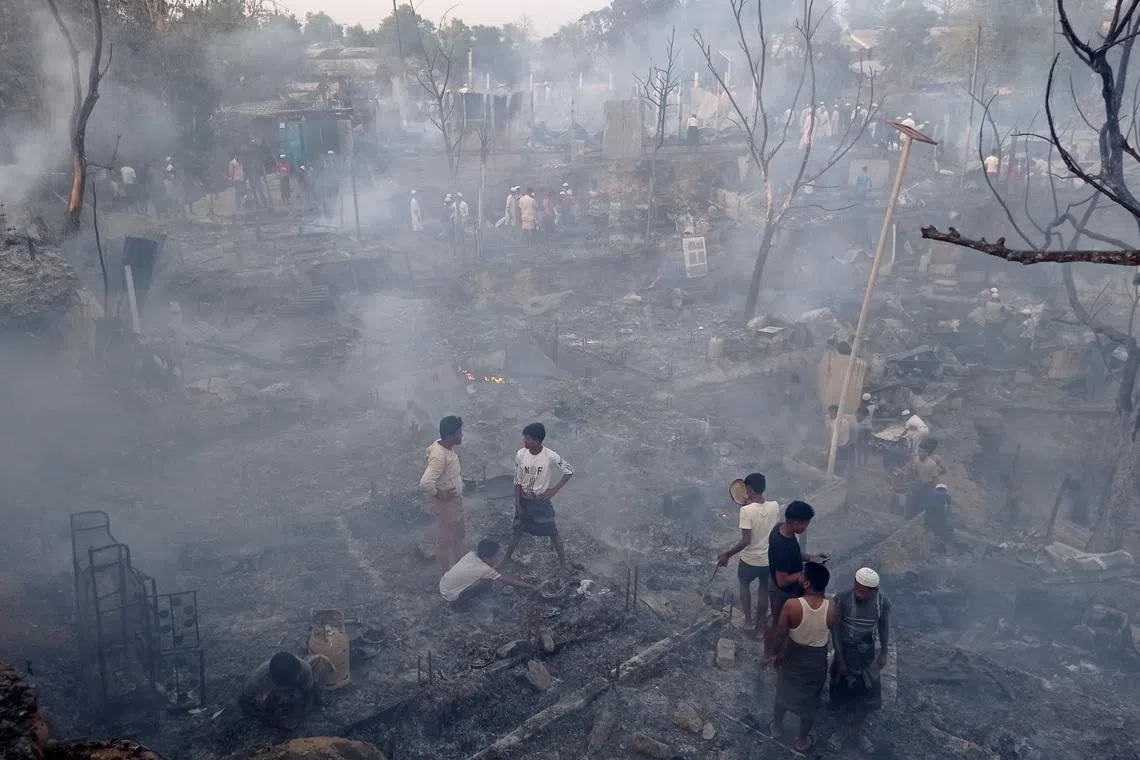Fire at Rohingya camp in Bangladesh leaves thousands without shelter
Sign up now: Get insights on Asia's fast-moving developments
Kutupalong, Bangladesh - A fire destroyed 2,000 shelters at a Rohingya refugee camp in south-eastern Bangladesh on Sunday, leaving around 12,000 people homeless, an official said.
The fire broke out at around 2.45pm local time at Camp 11 in Kutupalong, one of the world’s largest refugee settlements in Cox’s Bazar where more than a million refugees live.
Flames rapidly engulfed the bamboo-and-tarpaulin shelters, Mr Mijanur Rahman, Bangladesh’s refugee commissioner, told AFP.
“Some 2,000 shelters have been burnt, leaving about 12,000 forcibly displaced Myanmar nationals shelterless,” he said.
At least 35 mosques and 21 learning centres for the refugees were also destroyed, though there were no reports of any injuries or deaths, he added.
“My shelter was gutted. (My shop) was also burnt,” said Mr Mamun Johar, a 30-year-old Rohingya man.
“The fire took everything from me, everything.”
The blaze was brought under control in about three hours.
It was not clear how the fire started. The authorities have ordered an investigation.
Fires are common in the camps where nearly one million Rohingya refugees live in squalid conditions.
Most of them fled a military crackdown in Myanmar’s Rakhine state in 2017 and took refuge in Bangladesh.
“I couldn’t save anything. Everything burnt to ashes. Many are without homes. I don’t know what will happen to us,” said 40-year-old refugee Selim Ullah, a father of six children.
“When we were in Myanmar, we faced lots of problems... our houses were burned down,” he said. “Now it has happened again.”

Rohingya refugees search for their belongings after a fire broke out in Balukhali refugee camp in Ukhia on March 5, 2023.
PHOTO: AFP
A Bangladesh defence ministry report last month said that between January 2021 and December 2022, there were 222 fire incidents in the Rohingya camps – including 60 cases of arson.
In March 2021, in what was the worst blaze in the Rohingya camps,


